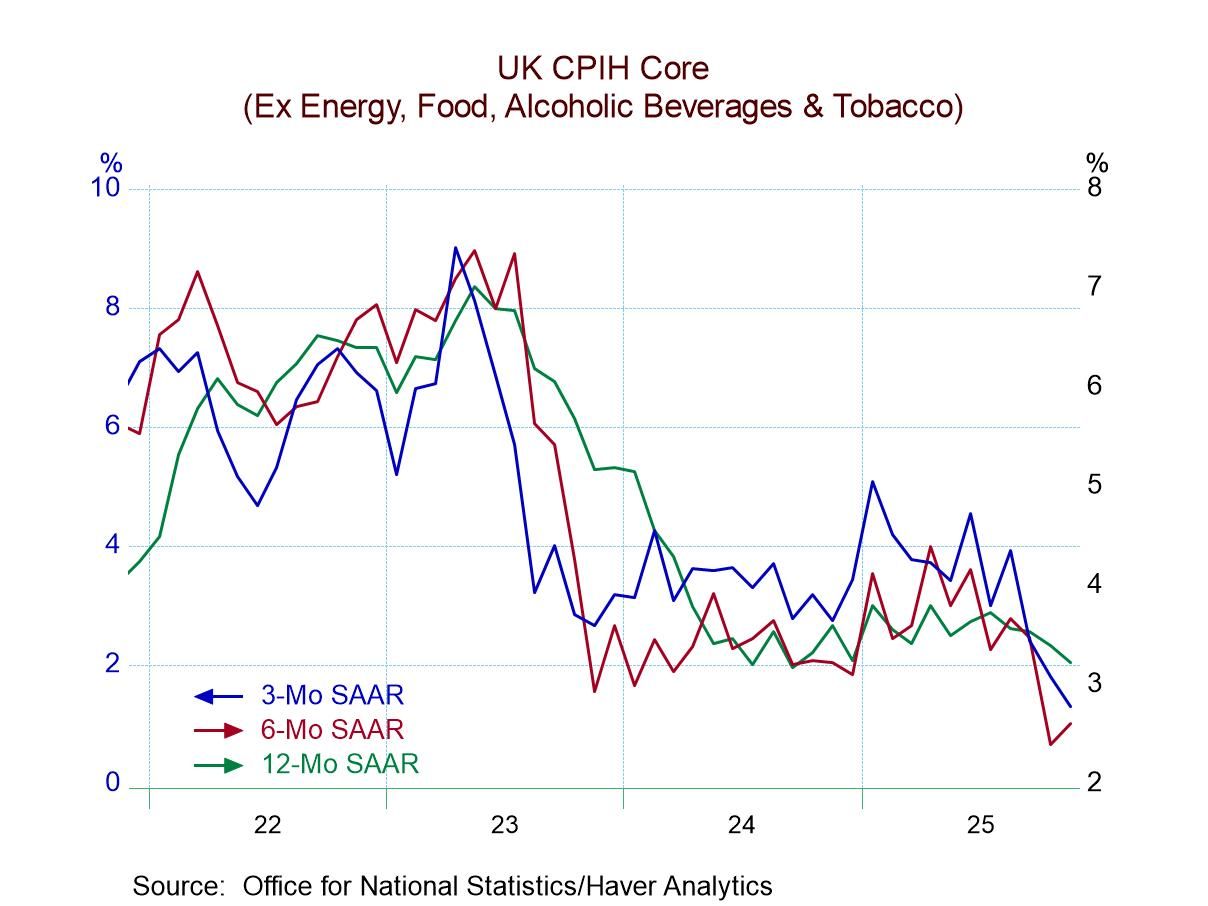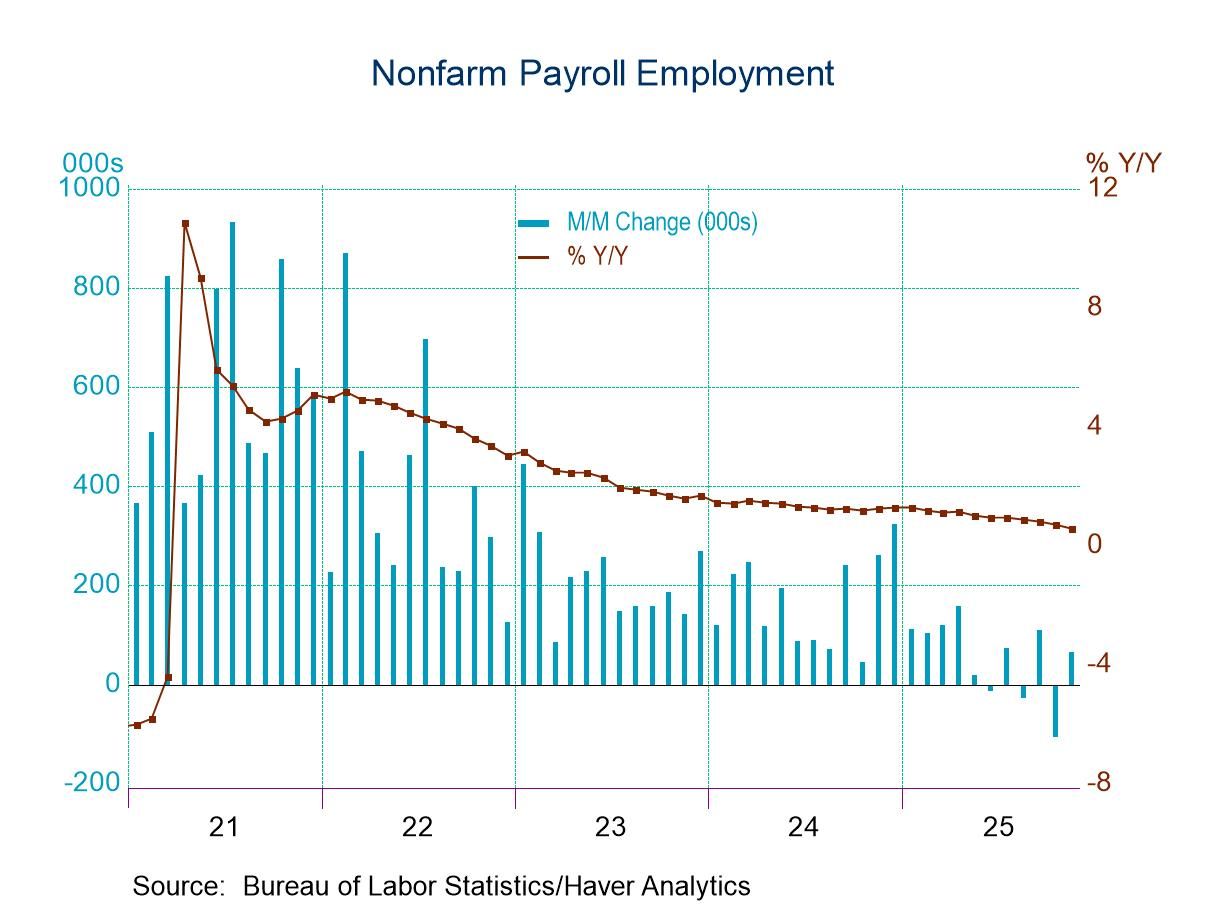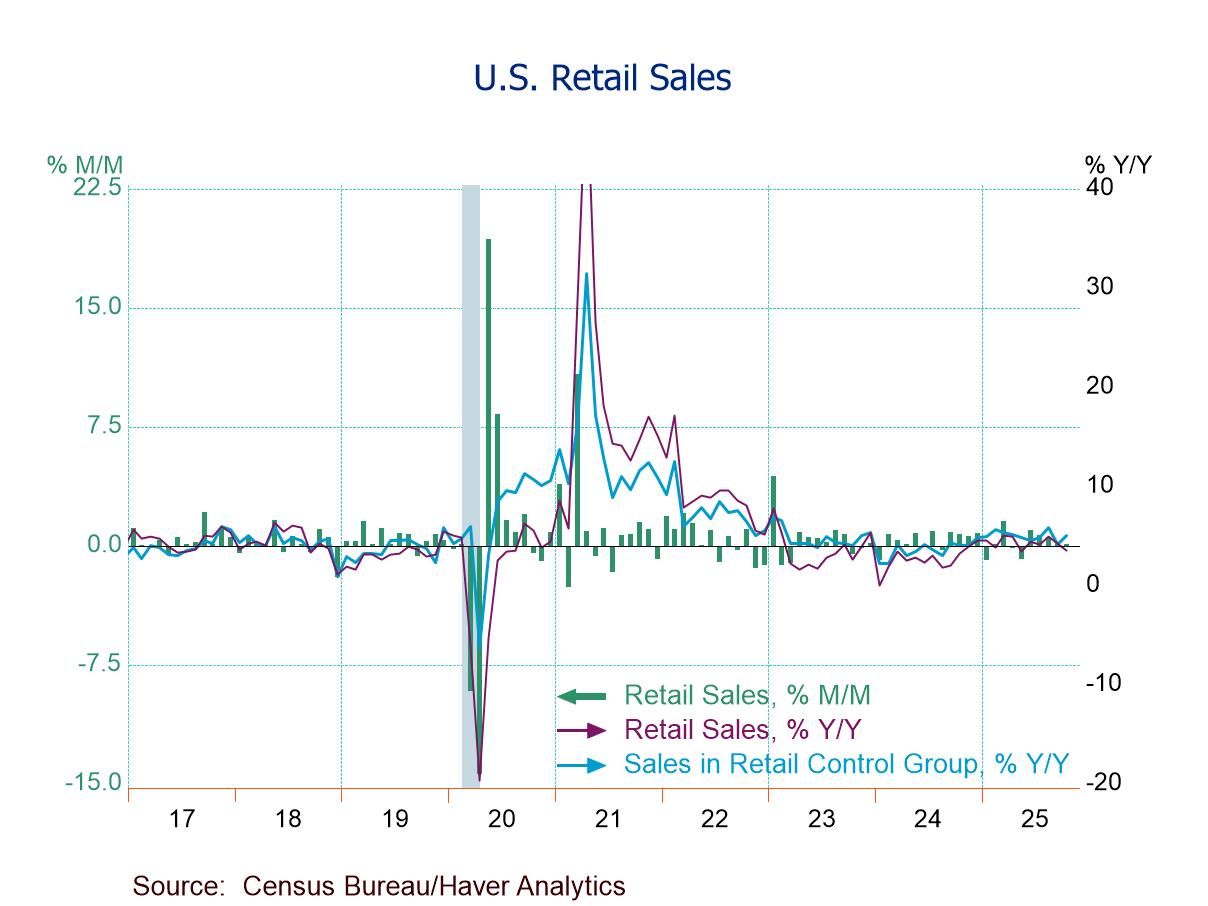 Global| Sep 28 2007
Global| Sep 28 2007U.S. Personal Income Rise of 0.3% Missed Expectations
by:Tom Moeller
|in:Economy in Brief
Summary
Personal income rose 0.3% in August after an unrevised 0.5% July increase. The latest rise lagged Consensus forecasts for a 0.4% gain and it was the weakest monthly increase since April. Much of the weakness in last month's income [...]
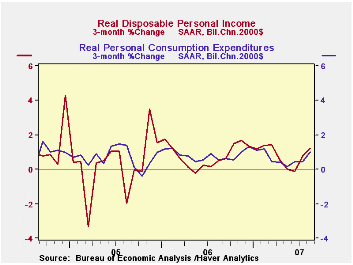
Personal income rose 0.3% in August after an unrevised 0.5% July increase. The latest rise lagged Consensus forecasts for a 0.4% gain and it was the weakest monthly increase since April.
Much of the weakness in last month's income gain was due to a modest rise in wages & salaries of just 0.2% (7.1% y/y) and it also was the weakest since April. Factory sector wages fell 0.1% (6.2% y/y) after a downwardly revised 0.1% July uptick.Wage & salary income in the service-producing industries also was weak and rose 0.3% (8.2% y/y) following the downwardly revised 0.5% July increase. Wages in the government sector rose 0.2% (4.0% y/y).
Interest income grew 0.7% (4.4% y/y), stronger with the rise in interest rates, and dividend income popped another 1.0% (13.7% y/y).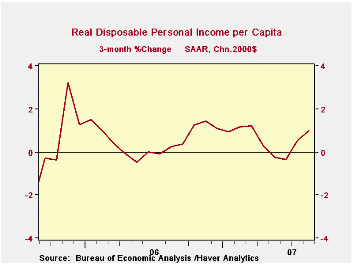
Personal current taxes rose just 0.2% but much stronger growth earlier this year pulled the y/y gain to a strong 10.8%. As a result, disposable personal income grew 0.4% (6.2% y/y), a bit below the increase in overall income, after a 0.6% July gain. Real disposable personal income rose 0.4% last month (4.4% y/y).
Personal consumption expenditures gained 0.6% last month. The increase was ahead of expectations for a 0.4% rise and was ahead of an unrevised 0.4% July gain. Durable goods purchases surged 2.4% (4.3% y/y) on the strength of a 5.4% (3.1% y/y) jump in motor vehicle outlays. Spending on furniture & other household equipment rose 0.8% (4.2% y/y) and July's increase was doubled to 1.0%. Spending on household operation jumped 2.1% (6.6% y/y) on the strength of a 4.2% (8.1% y/y) spike in electricity & gas costs. Outlays on gasoline continued to offset some of these increases with a 6.5% (-8.4% y/y) drop. Spending on apparel rose 0.5% (5.0% y/y), well below the pace of an upwardly revised 1.3% July spike, while outlays on medical care rose a steady 0.4% (6.2% y/y).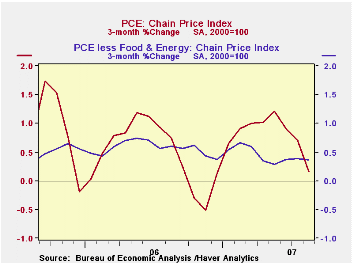
The PCE chain price index in August fell 0.1%, the first monthly decline since last October. The core PCE price index was steady at a 0.1% pace, where it has been for six months. Some of the decline in gasoline prices, which has been dampening the PCE price measure, is probably about to reverse direction with the rise in crude oil prices above $80 per barrel. However another source of price strength has been the rise in food prices, up 0.4% (4.0% y/y) in August and the annualized rate of increase so far this year is 5.4%.
The personal saving rate of 0.7% last month was fairly steady. That low figure compares to the flow of funds measure from the Federal Reserve which pegs households' net worth at nearly six times income due to the rise in real estate prices.
Can Social Security Survive the Baby Boomers? from the Federal reserve Bank of St. Louis can be found here.
| Disposition of Personal Income | August | July | Y/Y | 2006 | 2005 | 2004 |
|---|---|---|---|---|---|---|
| Personal Income | 0.3% | 0.5% | 6.8% | 6.6% | 5.9% | 6.2% |
| Personal Consumption | 0.6% | 0.4% | 5.2% | 5.9% | 6.2% | 6.4% |
| Saving Rate | 0.7% | 0.9% | -0.1% (Aug. 06) | 0.4% | 0.5% | 2.1% |
| PCE Chain Price Index | -0.1% | 0.1% | 1.8% | 2.8% | 2.9% | 2.6% |
| Less food & energy | 0.1% | 0.1% | 1.8% | 2.2% | 2.2% | 2.1% |
Tom Moeller
AuthorMore in Author Profile »Prior to joining Haver Analytics in 2000, Mr. Moeller worked as the Economist at Chancellor Capital Management from 1985 to 1999. There, he developed comprehensive economic forecasts and interpreted economic data for equity and fixed income portfolio managers. Also at Chancellor, Mr. Moeller worked as an equity analyst and was responsible for researching and rating companies in the economically sensitive automobile and housing industries for investment in Chancellor’s equity portfolio. Prior to joining Chancellor, Mr. Moeller was an Economist at Citibank from 1979 to 1984. He also analyzed pricing behavior in the metals industry for the Council on Wage and Price Stability in Washington, D.C. In 1999, Mr. Moeller received the award for most accurate forecast from the Forecasters' Club of New York. From 1990 to 1992 he was President of the New York Association for Business Economists. Mr. Moeller earned an M.B.A. in Finance from Fordham University, where he graduated in 1987. He holds a Bachelor of Arts in Economics from George Washington University.




